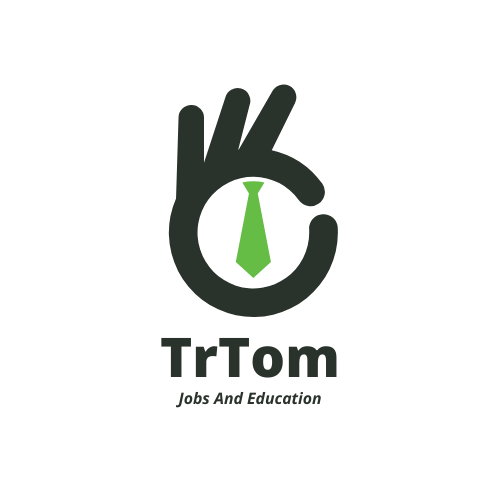Understanding Grant Opportunities in Canada
Types of Grants Available
Canada offers a diverse range of grant opportunities tailored for medical professionals. Key types of grants include:
- Research Grants: Financial aid for innovative medical studies, such as those focusing on Parkinson’s disease. These grants can range from $20,000 to $75,000.
- Clinical Training Grants: Funding for advanced clinical fellowships, enabling healthcare professionals to specialize.
- Foundational Grants: Support for grassroots projects aimed at improving public health and medical education.
Eligibility Criteria for Medical Professionals
To qualify for these grants, medical professionals typically need to meet specific criteria, including:
- Academic Qualifications: Must hold relevant degrees (MD, PhD) from recognized institutions.
- Research Focus: Demonstrate a commitment to advancing knowledge in targeted areas like neurology or geriatrics.
- Institution Affiliation: Applications often need to be endorsed by an accredited medical or research institution.
These criteria ensure that funding continues to foster high-impact research in Canada’s medical landscape.
Researching Grant Programs
Government Grant Programs
When pursuing funding, government grant programs are invaluable resources for medical professionals. The Canadian Institutes of Health Research (CIHR) offers a variety of awards that cater to different stages of research training:
- Health Research Training Awards: Support for Masters, Doctoral, and Postdoctoral levels.
- Canada Graduate Scholarships: Financial support for exceptional doctoral candidates in health-related fields.
- Special Initiatives: Targeted funding to address high-priority health topics.
Private Foundation Grants
In addition to government options, numerous private foundations provide grants that can enhance research pursuits:
- Health-Focused Foundations: Organizations like the Michael J. Fox Foundation offer grants for Parkinson’s research that can range from $50,000 to $75,000.
- Community-Focused Support: Several foundations are dedicated to funding local health initiatives, ensuring comprehensive support across medical disciplines.
These funding avenues are crucial for advancing medical research in Canada.

Application Process for Grant Funding
Required Documentation
Navigating the grant application process means keeping track of essential documentation to support your proposal. Common requirements include:
- Project Proposal: A detailed description outlining your project goals and methods.
- Budget Plan: A clear budget indicating how you intend to allocate funds.
- Eligibility Verification: Proof of eligibility, such as registration information or tax status.
Ensuring these documents are thorough and well-organized can greatly enhance your chances of securing funding.
Tips for Writing a Strong Grant Proposal
Crafting a compelling grant proposal can make all the difference. Here are some strategies:
- Tailor Your Approach: Customize your proposal to align with the funding organization’s objectives.
- Be Concise: Keep your language clear and avoid jargon.
- Provide Evidence: Support your claims with data and research findings.
By following these tips, applicants can create proposals that resonate with funders and increase their chances of success.
Securing Grants for Specific Medical Specializations
Grants for Surgeons
Surgeons in Canada can access a variety of grants aimed at enhancing their expertise and supporting groundbreaking research. For instance, grants ranging from $50,000 to $75,000 are available specifically for studies related to surgical innovations and techniques. These grants often encourage collaborative research projects that can lead to improved patient outcomes and cost efficiencies within the healthcare system.
Grants for Physicians
Physicians, on the other hand, can benefit from several targeted funding opportunities designed to support their professional development and research initiatives. Programs like the Health Care Unburdened Grant offer substantial funding to projects aimed at reducing administrative burdens, which ultimately allow physicians to focus more on patient care. By securing these grants, physicians can contribute significantly to advancements in medical practice.
Impact of Advanced Training on Medical Practice
Advantages of Further Education
Advanced training offers numerous benefits to medical professionals. By enhancing their skill sets, physicians can:
- Improve Patient Care: Additional training in areas like emergency medicine or general surgery allows physicians to address specific community health needs.
- Stay Current with Medical Innovations: Continuous education ensures that physicians are familiar with the latest medical technologies and practices.
This ultimately leads to better health outcomes and patient satisfaction.
You can also read on: Driving Success in Healthcare: How MGMA Analytics Can Fine-Tune Your Practice
Long-term Career Benefits
Investing in further education can significantly influence a physician’s career trajectory. Key long-term benefits include:
- Increased Job Opportunities: Physicians with specialized training often have access to more diverse job options.
- Higher Earning Potential: Advanced qualifications frequently lead to higher salaries and career advancement.
In essence, ongoing education not only enriches medical practice but also enhances a physician’s professional journey.

Networking Opportunities and Mentorship
Building Connections in the Medical Field
Networking is crucial for medical professionals looking to expand their horizons. Engaging with peers and field leaders can provide valuable insights and opportunities. Key strategies include:
- Joining Professional Associations: Organizations like the Canadian Health Workforce Network facilitate connections among health professionals.
- Participating in Conferences: Attending medical conferences offers chances to meet experts in various specializations and share knowledge about advancements.
These connections not only enrich one’s practice but can also lead to collaborative research or career opportunities.
Finding Support Through Mentorship Programs
Mentorship plays a pivotal role in career development and skill enhancement in the medical field. Programs such as the Health Services and Policy Research Training Initiative offer structured support through:
- Experienced Mentors: Trainees are paired with accomplished professionals who can provide guidance, feedback, and support.
- Peer Networking: Opportunities for peer mentorship enable knowledge sharing and collective problem-solving.
These mentorship connections foster growth and resilience, preparing the next generation of medical leaders for impactful careers.
You can also read on: GMAT Not Required: Explore Elite MBA Programs

